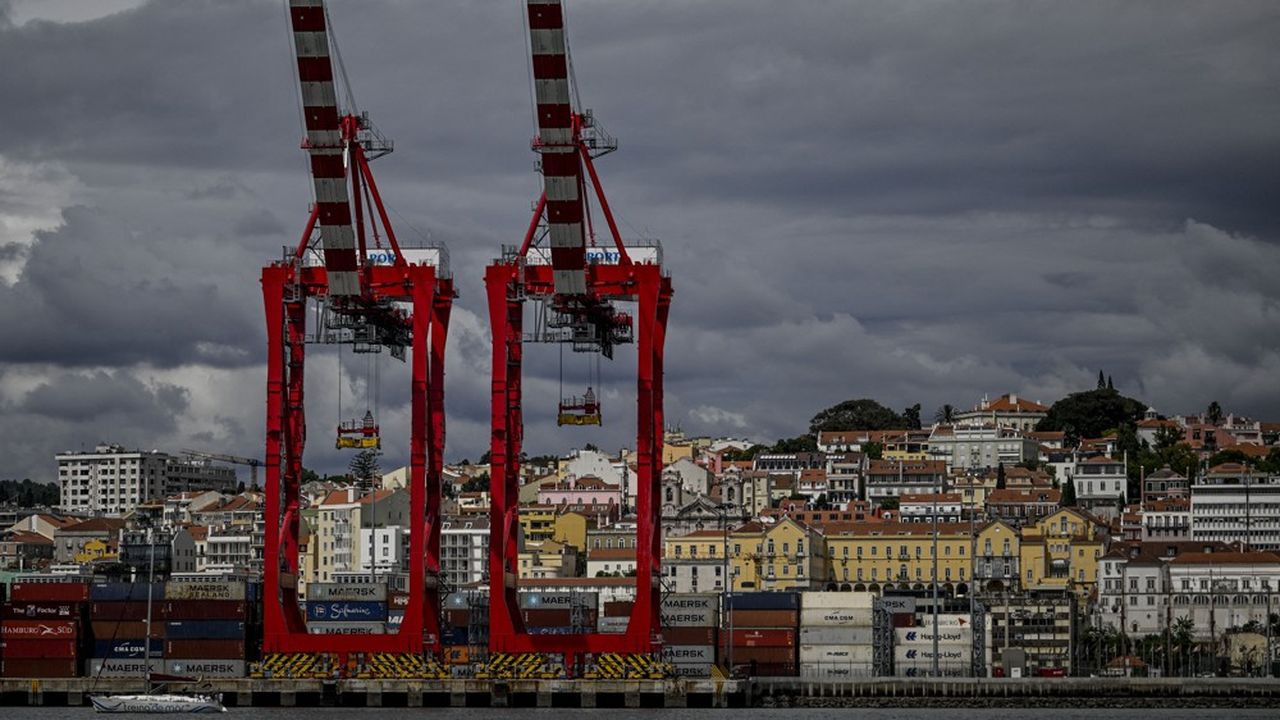
Budget surplus, debt reduction, public investment and tax cuts. These are the main points of Portugal's 2024 finance bill, unveiled by the Socialist government of António Costa on Tuesday.
Lisbon is reaping the benefits of its prudent management and is preparing for the end of 2023 with a positive budget balance of 0.8% of GDP, paving the way for a more generous budget than expected for 2024.
A rare condition in Europe
After the pandemic subsided, the country regained the balance of its public finances that had already been achieved in 2019, when the country ended the year with a surplus of 0.1% of GDP. This is a very rare situation within the European Union, where only a few countries, such as Ireland or Cyprus, do not have a deficit.
This time he will do better, with a more comfortable balance, which should give him room to expand his social policy and set ambitious projects. While maintaining fiscal discipline, Finance Minister Fernando Medina plans to take advantage of this abundance to reduce public debt, which should fall below 100% of GDP for the first time since 2009.
Tax discipline champion
In the space of a decade, Portugal has gone from being a weak link in the eurozone to a champion of fiscal discipline. This is an astonishing turnaround for a country that, along with Greece, was the hardest hit by the eurozone debt crisis. In 2011, on the verge of default, it received €78 billion in international aid in exchange for a severe austerity plan that forced it to raise taxes and cut salaries and pensions.
After four years of this shock treatment, the arrival of the Socialist government of António Costa in 2015 changed the situation, with the then Finance Minister, Mário Centeno, making a series of gestures to ease the pressure on the sector. The middle ranks. His strategy, even if cautious, was greeted with skepticism by Brussels and the markets, but it produced enough stimulus to reassure the Portuguese and revitalize consumption.
This recovery dynamic, amplified by the momentum of tourism, has made it possible to turn things around in a few years. The deficit, which fell to 11.4% in 2010, fell to 3% in 2017, then to 0.3% in 2018, before reaching its first surplus in 2019, before the pandemic shock. Public debt has followed the same path: it fell from 132.9% in 2014 to 113.9% in 2022, and continues to decline.
“Centeno's Method”
The “Centeno method” is still working, even though he is no longer finance minister, and Lisbon has learned how to navigate between social progress and budget discipline. The 2024 budget is modeled after the same model. It takes into account slower growth, which will move from an expected 2.2% this year to 1.5% next year, but could still make it possible to achieve a surplus of 0.2% in 2024, while reducing exposure to debt, Portugal’s Achilles heel.
It is a question of “following a wise path”, “with the constant ambition to continue building a richer society, providing more cohesion in a more innovative country”, as Fernando Medina, the Minister of Finance, points out. Next year, he plans to reduce income tax and increase pensions (by 6.3% on average) as well as civil servant salaries (by a better rate of 3% to 6.8%), expand social assistance and new support schemes for young people. As well as increase public investment by 24%, to increase the overall envelope from 2.8% of GDP to 3.3%, with commitments to modernize the public health service and finance actions in favor of housing renovation and new social housing stock.
The government of Antonio Costa is expected to pass its financial bill without any problems, as the Socialists have an absolute majority in parliament. But he knows that social discontent is growing in the country, faced with difficulties in obtaining housing and the loss of purchasing power.
The frustrated criticize the lack of major reforms, ambition and major transformational projects for the country. For them, the caution that characterized the years emerging from the crisis is no longer appropriate. The government has responded by warning of slower growth next year.






